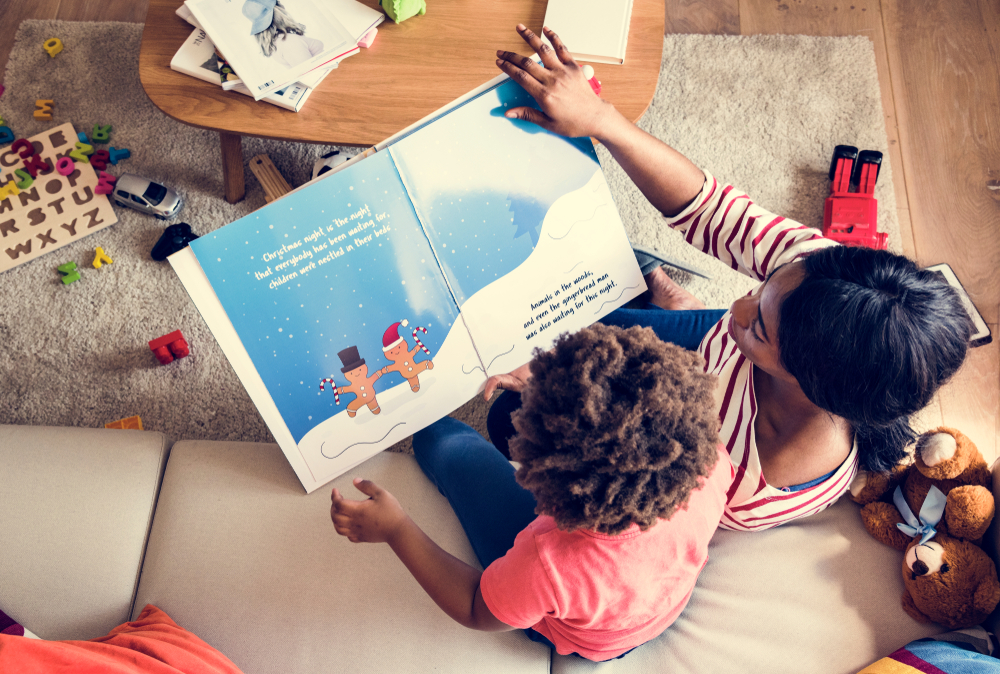Sorting skills Easy Math Worksheets for 6-Year-Olds
5 filtered results
-
From - To
Enhance your child's mathematical abilities with our fun and engaging Sorting Skills Easy Math Worksheets designed specifically for 6-year-olds! These worksheets introduce young learners to sorting concepts by categorizing objects based on various attributes such as shape, color, and size. Each worksheet is crafted to promote critical thinking and problem-solving skills while keeping kids entertained. With vibrant illustrations and interactive tasks, children will enjoy sorting activities that reinforce their understanding of math fundamentals. Ideal for home or classroom use, our worksheets provide a fantastic way to build essential skills in a playful and enjoyable manner. Download now and make learning fun!
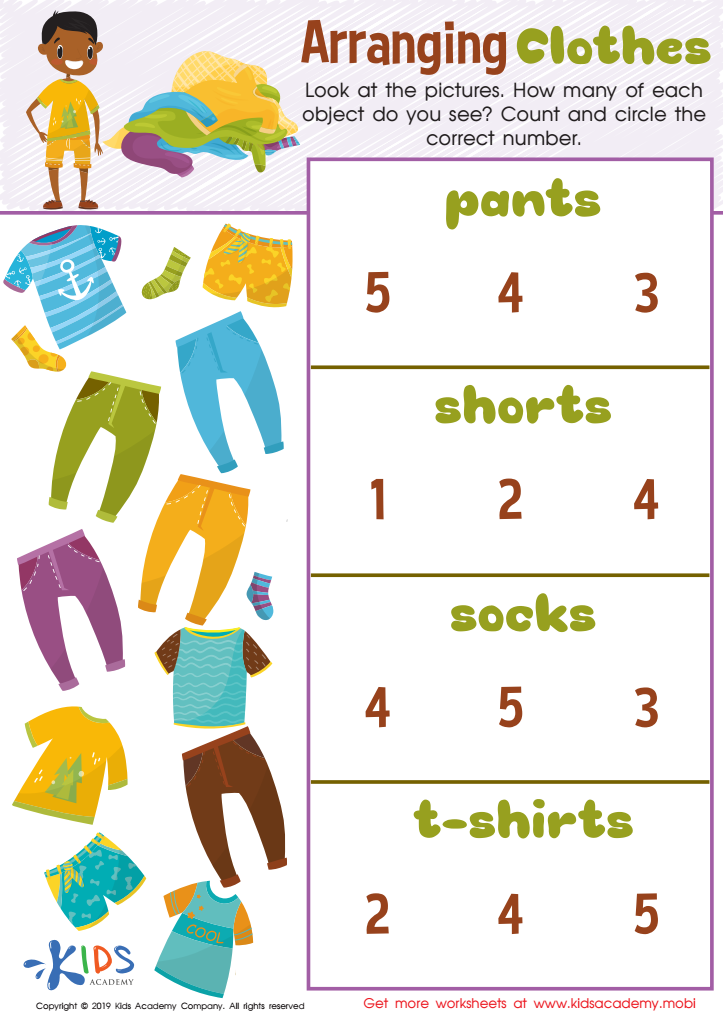

Arranging Clothes Worksheet
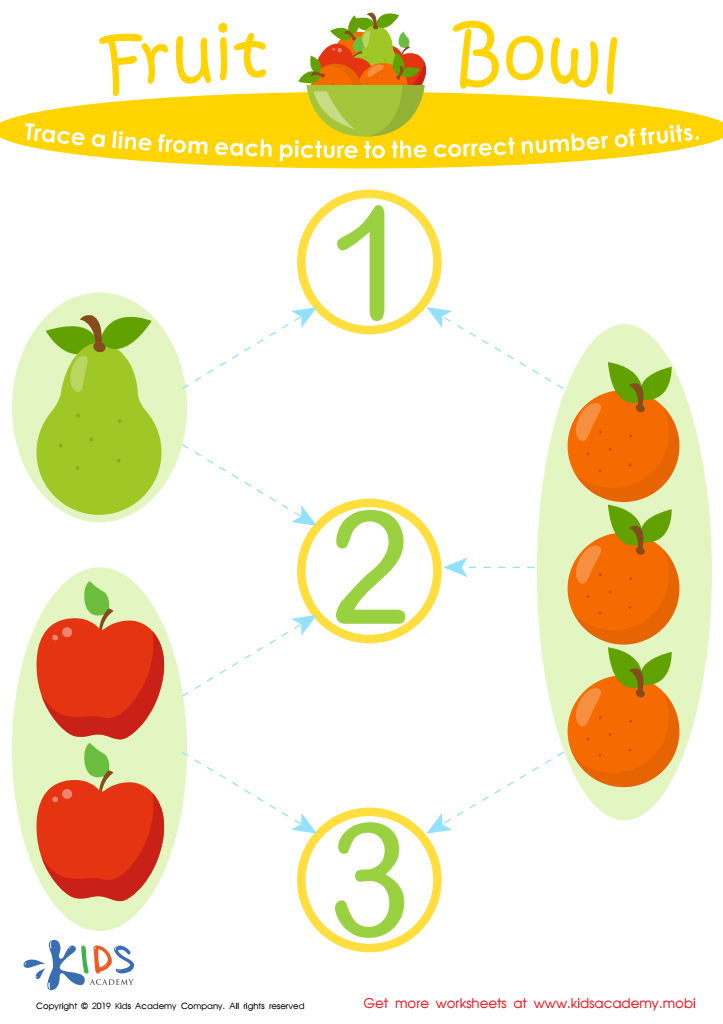

Fruit Bowl Worksheet
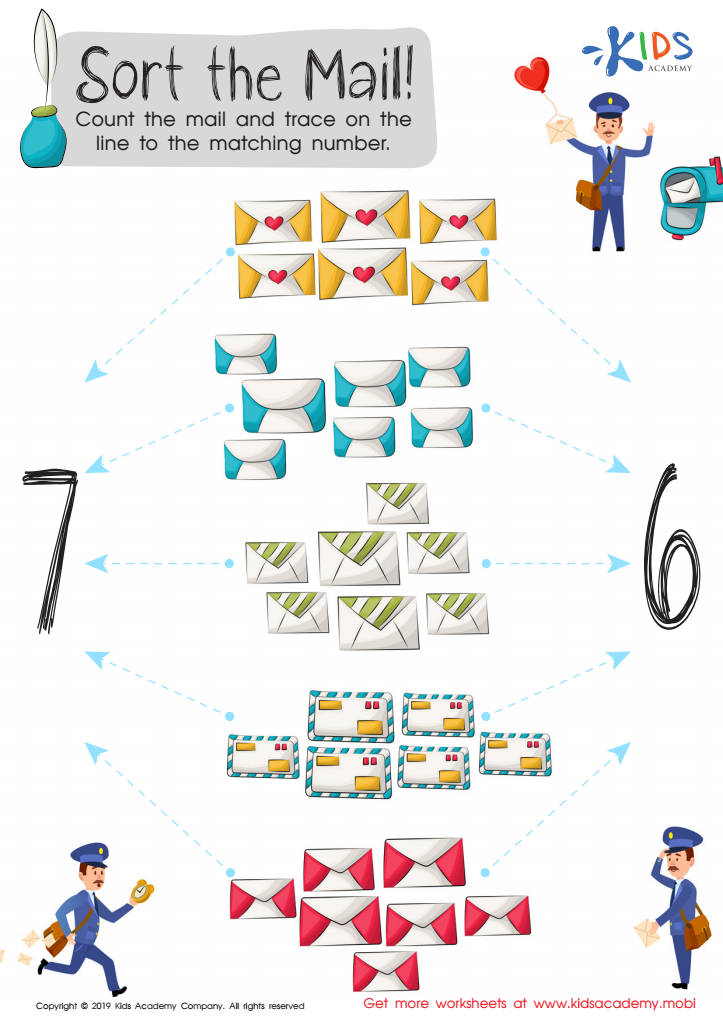

Sort the Mail Worksheet
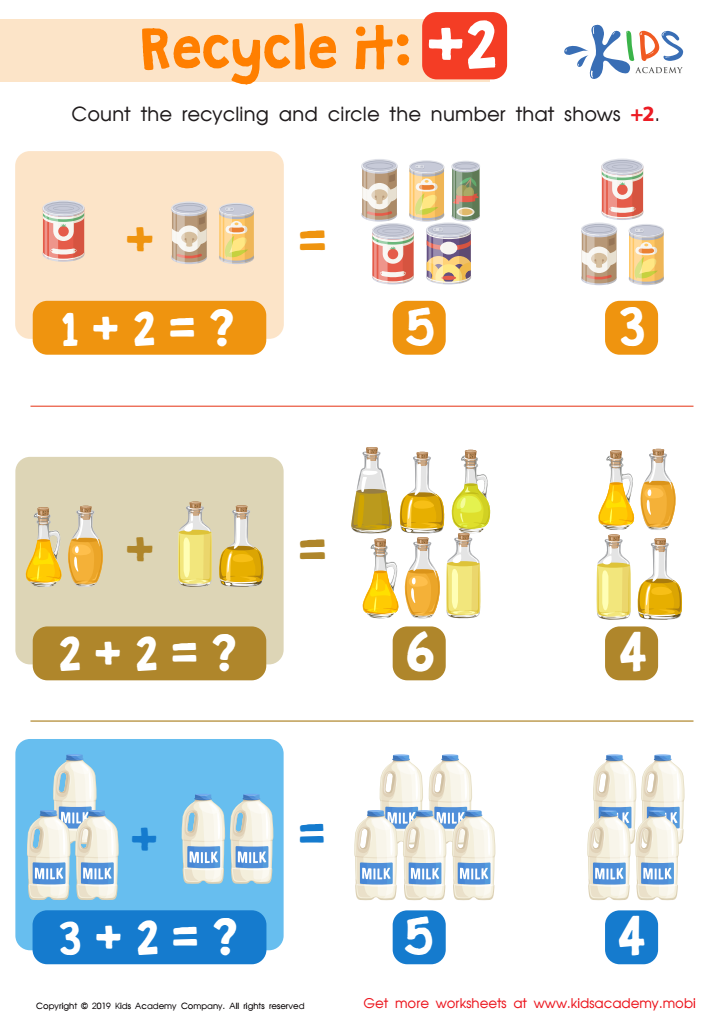

Recycle It: +2 Worksheet
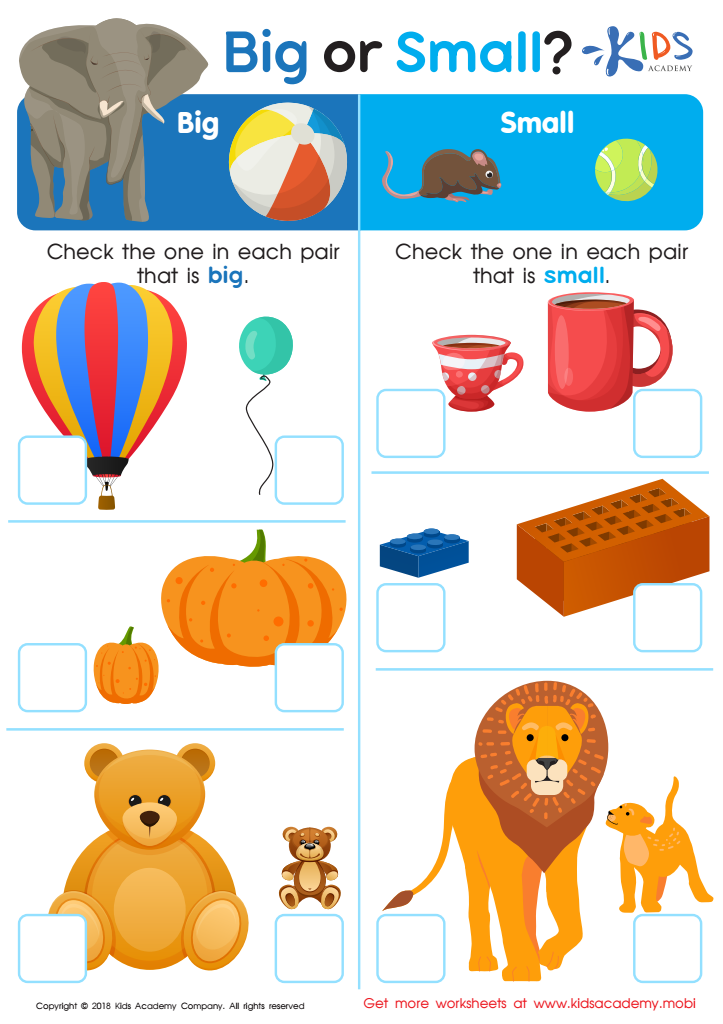

Big or Small? Worksheet
Sorting skills are fundamental for six-year-olds as they provide a foundation for various cognitive and academic abilities. Engaging in sorting exercises helps children develop critical thinking and problem-solving skills. When children sort objects by size, color, or shape, they learn to make observations, categorize information, and recognize patterns. These early mathematical concepts are crucial, as they pave the way for more complex skills such as addition, subtraction, and classification.
Parents and teachers should care about these skills because they foster not only mathematical proficiency but also cognitive development. Sorting cultivates a child’s ability to understand relationships between objects and categorize their environment, which enhances logical reasoning. Additionally, sorting activities can support social skills; when kids sort together, they learn to communicate, collaborate, and negotiate roles within group tasks.
Moreover, these skills have real-world applications; children encounter sorting data in everyday life, from organizing toys to understanding seasons. By prioritizing sorting skills, adults can enrich children's educational experiences, making learning enjoyable and effective while equipping them with versatile tools for the future. Early mastery of sorting aids in building confidence and lays the groundwork for a positive attitude towards mathematics and learning in general.
 Assign to My Students
Assign to My Students









